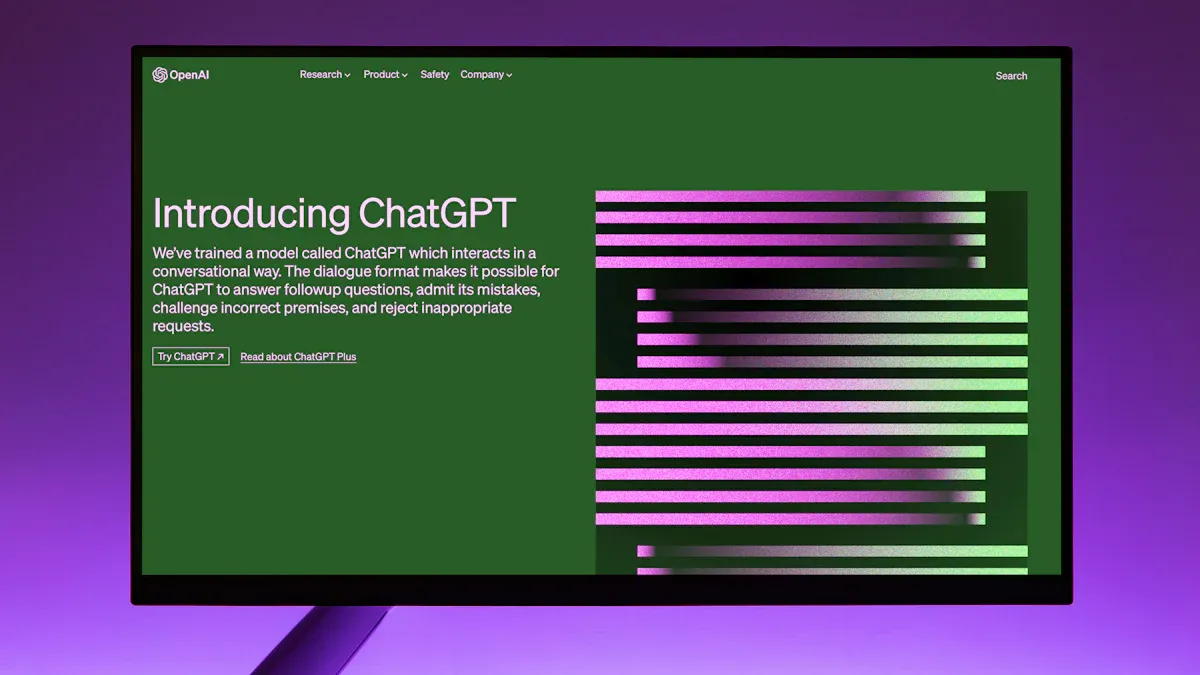How AI Algorithms Enhance Job Matching for Candidates and Employers

Imagine a world where finding the perfect job or hiring the ideal candidate feels effortless. That’s exactly what ai-powered job match algorithms are making possible. These systems analyze massive amounts of data to connect candidates with roles that align with their skills, experience, and even career aspirations. Unlike traditional methods, ai job matching doesn’t just rely on keywords. It evaluates both explicit qualifications and subtle traits like cultural fit or soft skills. This means you get smarter, more accurate matches.
Companies are catching on fast. Did you know that 40% of businesses now use ai to source and engage talent? And staffing firms using automation are twice as likely to grow revenue. Whether you’re a job seeker or an employer, ai job matching is transforming how you approach the hiring process.
Key Takeaways
AI tools study large data to match people with jobs they suit.
These tools save time by finding jobs fast, helping people prepare for interviews.
Companies use AI to hire faster and find better workers.
AI helps make hiring fair by reducing unfair bias, creating equal chances.
New AI updates will improve matching by looking at skills and values, not just degrees.
Understanding AI Job Matching

What Are AI-Powered Job Match Algorithms?
AI-powered job match algorithms are the backbone of modern hiring platforms. These advanced algorithms analyze massive datasets to connect you with the right opportunities or candidates. They go beyond simple keyword matching by using tools like Natural Language Processing (NLP) and Machine Learning (ML). NLP helps the system understand resumes and job descriptions, while ML learns from past data to improve its predictions over time.
Here’s what makes these algorithms so effective:
NLP: It processes human language, extracting key details like skills, education, and experience.
ML: It identifies patterns in historical data, refining its ability to match candidates with jobs.
Data Analysis: It examines trends and insights to ensure better matches.
These components work together to create smarter, more accurate matches, saving you time and effort.
How AI Enhances Candidate Matching
AI job matching takes candidate matching to the next level. It doesn’t just look at your resume; it evaluates your skills, preferences, and even cultural fit. For example, AI-powered candidate matching tools like Arytic and Talentprise consider factors like your values and personality. This ensures you’re not just qualified for the job but also a good fit for the company.
AI systems also analyze resumes to identify your strengths and match them with job descriptions. They even assess company culture to make sure you’ll thrive in your new role. By doing this, AI recruitment tools help you find jobs that align with your career goals and personal values.
The Role of Machine Learning and Natural Language Processing
Machine Learning and Natural Language Processing are the driving forces behind AI in recruitment. NLP interprets resumes and job descriptions, extracting relevant skills and qualifications. ML, on the other hand, uses historical data to predict how well you’ll fit a role.
For instance, ML algorithms learn from past hiring successes to improve future matches. Meanwhile, NLP ensures the system understands the nuances of human language, making the matching process more accurate. Together, these AI tools create a seamless and efficient job-matching experience.
Benefits of AI Job Matching
For Candidates
Personalized Job Recommendations
AI job matching platforms excel at providing personalized job recommendations tailored to your unique skills and career goals. These systems analyze data from your resume, job preferences, and even social media profiles to identify opportunities that align with your aspirations. For example:
They match you with roles that fit your skills and values.
They refine recommendations based on your preferences, ensuring a better fit.
They notify you about new openings almost instantly, so you never miss an opportunity.
This level of personalization enhances your job search experience, making it more targeted and rewarding.
Faster and More Efficient Job Searches
Gone are the days of endlessly scrolling through job boards. AI-powered tools streamline your job search by doing the heavy lifting for you. They quickly sift through thousands of listings to find the ones that match your qualifications and preferences. According to research, these systems save you significant time, allowing for quicker job placements. Plus, they increase your visibility to employers, even if you lack traditional qualifications. This means you can focus on preparing for interviews instead of searching for jobs.
Benefit | Description |
|---|---|
AI highlights your profile to employers, even if you don’t meet every traditional requirement. | |
Improved Job Fit | Matches based on skills and culture, leading to higher job satisfaction. |
Time Savings | Reduces the time spent searching, helping you land a job faster. |
For Employers
Streamlined Recruitment Processes
AI job matching simplifies recruiting by automating repetitive tasks. It screens resumes, shortlists candidates, and even schedules interviews. This efficiency reduces the time it takes to fill open positions. AI also filters out uninterested applicants, so you can focus on the most suitable candidates. By analyzing large datasets, it ensures you don’t miss out on top talent. This makes recruiting faster and more effective.
Improved Job-Candidate Fit
AI ensures a better job-candidate fit by analyzing resumes and job descriptions in detail. It identifies relevant skills and experiences, reducing the risk of overlooking qualified candidates. For example, machine learning algorithms consider factors beyond keywords, like cultural fit and career goals. This precision leads to better hiring decisions and improved candidate experience for job seekers.
Advantage | Description |
|---|---|
Accuracy | AI considers multiple factors, ensuring precise matches. |
Personalization | Tailors recommendations to individual needs, improving the job search for candidates. |
Reduction of Bias | Focuses on objective criteria, promoting fairness in hiring. |
Shared Benefits
Enhanced Diversity and Inclusion
AI promotes diversity by reducing bias in hiring. It anonymizes candidate data, allowing you to focus on skills and qualifications rather than demographic details. AI also analyzes job descriptions to remove biased language, ensuring they attract a diverse pool of candidates. This approach fosters inclusivity and innovation in the workplace.
Better Long-Term Retention
When candidates are matched with roles that align with their skills and values, they’re more likely to stay long-term. AI’s ability to assess cultural fit and career goals ensures that both you and your employer benefit from a stable and productive working relationship. This leads to higher job satisfaction and reduced turnover rates.
Challenges and Ethical Considerations in AI Job Matching
Addressing Algorithmic Bias
AI job matching has the potential to revolutionize hiring, but it’s not without challenges. One of the biggest hurdles is algorithmic bias. You might wonder, how does bias creep into AI systems? It often starts with the data. Historical hiring data used to train AI can reflect existing inequalities. For example:
Employers’ past hiring decisions may disadvantage candidates from underrepresented groups.
Algorithms can unintentionally reproduce and even amplify these biases.
This can lead to unfair outcomes, where qualified candidates are overlooked. To tackle this, AI systems need diverse and unbiased training data. Ethical considerations like privacy and transparency also play a role. Without addressing these, trust in AI job matching could erode.
Ensuring Transparency and Accountability
When you apply for a job, wouldn’t you want to know how decisions are made? Transparency in AI job matching is crucial. Employers can build trust by clearly communicating how AI evaluates candidates. Here are some strategies to ensure transparency and accountability:
Share insights with candidates about how AI systems make decisions.
Regularly audit AI algorithms to identify and fix biases.
Involve human recruiters in final hiring decisions to add a layer of fairness.
By following these practices, employers can create a fairer hiring process. It also ensures that AI systems comply with laws and uphold principles like fairness and equal opportunity.
Tip: Look for companies that prioritize transparency in their AI hiring practices. It shows they value fairness and accountability.
Protecting Data Privacy
AI job matching relies on vast amounts of data, but protecting your privacy is non-negotiable. Employers must use tools designed with strong data protection mechanisms. Here’s how they can safeguard your information:
Regularly monitor and audit AI systems to stay compliant with evolving regulations.
Educate HR teams about data privacy norms to ensure ethical recruitment practices.
These steps not only protect your personal information but also build trust in AI-powered hiring systems. When employers prioritize privacy, it creates a safer and more ethical job-matching environment.
The Future of AI in Job Matching

Advancements in AI Technology
AI job matching is evolving rapidly, and the future looks even more promising. You can expect these systems to become smarter and more personalized. They’ll consider your preferences, career goals, and even work styles to find the perfect fit. Instead of focusing solely on degrees or job titles, future platforms will prioritize your skills and competencies. This shift will open doors for candidates with non-traditional backgrounds.
Here’s what’s on the horizon:
Real-time matching will make the process faster and more dynamic.
Virtual assistants will help you navigate job platforms more efficiently.
AI will integrate with other HR tools like applicant tracking systems, creating a seamless experience for employers.
Soft skills like teamwork and adaptability will play a bigger role in matching you with jobs.
Graph Neural Networks (GNNs) are also emerging as a game-changer. They analyze professional networks to improve recommendation accuracy. With these advancements, AI job matching will feel more intuitive and effective.
The Rise of AI-Driven Career Coaching
AI isn’t just about matching you with jobs. It’s also becoming your career coach. Imagine having a tool that offers personalized advice based on your strengths and market trends. AI-driven career coaching does exactly that. It helps you optimize your resume, suggests career paths, and even connects you with networking opportunities.
This technology gives you insights into the job market, helping you make smarter decisions. It’s like having a mentor who’s always available. Whether you’re switching careers or climbing the ladder, AI career coaching can guide you every step of the way.
Balancing Innovation with Ethical Practices
As exciting as these advancements are, they come with challenges. AI systems can unintentionally perpetuate biases if trained on flawed data. Transparency is another concern. You deserve to know how AI makes decisions about your career. Employers must address these issues to build trust.
Here’s what needs attention:
Bias in hiring processes can lead to unfair treatment.
Privacy concerns arise when handling personal data.
Lack of transparency can make the process feel unfair.
Accountability for AI decisions remains a gray area.
Employers using AI must prioritize fairness and privacy. By addressing these risks, they can ensure AI job matching benefits everyone.
AI job matching is reshaping how you find jobs and how employers hire. It offers personalized, efficient, and fair solutions that benefit both candidates and companies. By focusing on objective criteria, AI reduces unconscious bias and promotes inclusivity. For example:
Audo uses AI to ensure assessments are based on qualifications, fostering fairness.
AI-driven tools emphasize diversity by removing biased language from job descriptions.
To fully harness its potential, stakeholders must act responsibly. This includes setting ethical guidelines, addressing biases, and protecting data privacy. Regular audits and educating hiring teams about AI bias can also make a big difference. When used responsibly, AI can create a more inclusive and effective job market for everyone.
Note: Embracing AI responsibly isn’t just about technology—it’s about creating opportunities for all.
FAQ
What makes AI job matching better than traditional methods?
AI job matching analyzes more data faster than traditional methods. It considers skills, preferences, and even cultural fit. Unlike keyword-based systems, AI uses advanced tools like machine learning to improve accuracy. This means you get better job matches without spending hours searching.
Can AI job matching help if I don’t meet all job requirements?
Yes! AI focuses on your skills and potential, not just your qualifications. It highlights transferable skills and matches you with roles where you can thrive. Even if you lack traditional experience, AI can connect you with opportunities that align with your strengths.
How does AI ensure fairness in hiring?
AI reduces bias by focusing on objective criteria like skills and experience. It anonymizes data to prevent discrimination based on gender, age, or ethnicity. Some systems even flag biased language in job descriptions, promoting diversity and inclusion in the hiring process.
Is my data safe when using AI job-matching platforms?
Reputable AI platforms prioritize data privacy. They comply with global standards and use encryption to protect your information. Always check if the platform has clear privacy policies and ensures your data won’t be shared without consent.
Will AI replace human recruiters?
No, AI complements human recruiters by handling repetitive tasks like screening resumes. This gives recruiters more time to focus on personal interactions and decision-making. AI enhances the process but doesn’t replace the human touch needed for final hiring decisions.
See Also
Harnessing AI Tools to Forecast Candidate Performance Effectively
How AI Recruitment Tools Transform Contemporary Hiring Methods
Utilizing AI Hiring Solutions to Develop Predictive Analytics
Leveraging AI Hiring Platforms for Smart Interview Strategies
Achieving Recruitment Excellence Through AI Solutions: MokaHR Insights
From recruiting candidates to onboarding new team members, MokaHR gives your company everything you need to be great at hiring.
Subscribe for more information

